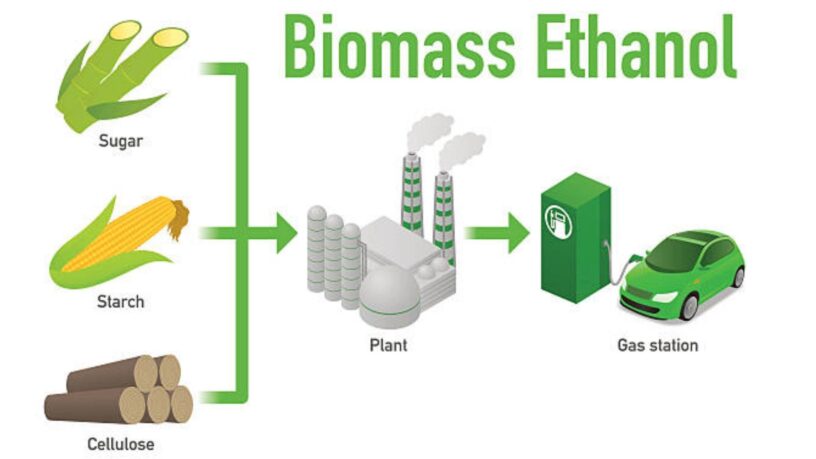Bioethanol Market size was estimated at USD 51.26 billion in 2023 and is predicted to hit around USD 176.21 billion by 2033, poised to grow at a CAGR of 13.2% during the forecast period 2024 to 2033.
Bioethanol Market Overview: A Detailed Analysis
Introduction to Bioethanol
Bioethanol, a renewable and sustainable fuel derived from biomass, has emerged as a key player in the global transition towards cleaner energy sources. Produced primarily from agricultural crops such as corn, sugarcane, and wheat, bioethanol offers numerous environmental and economic benefits compared to traditional fossil fuels. In this comprehensive analysis, we delve into the bioethanol market, exploring its key components, market dynamics, applications across industries, and future prospects.
Understanding Bioethanol Production
Bioethanol is produced through a fermentation process that converts sugars and starches found in biomass feedstocks into alcohol. The most common method of bioethanol production involves the following steps:
- Feedstock Preparation: Biomass feedstocks such as corn, sugarcane, and wheat are harvested and processed to extract sugars and starches.
- Pretreatment: The biomass undergoes pretreatment to break down complex carbohydrates into simpler sugars, making them more accessible for fermentation.
- Fermentation: The pretreated biomass is mixed with water and enzymes, and yeast is added to initiate fermentation. During fermentation, yeast converts sugars into ethanol and carbon dioxide.
- Distillation: The ethanol produced during fermentation is separated from the fermentation broth through distillation, resulting in a high-purity ethanol product.
- Dehydration: The ethanol undergoes dehydration to remove any remaining water and increase its concentration, resulting in fuel-grade ethanol.
Feedstock Diversity
The bioethanol market benefits from the diversity of feedstocks used in its production. Some of the most commonly used feedstocks include:
- Corn: In the United States, corn is the primary feedstock for bioethanol production, accounting for the majority of ethanol produced. Corn ethanol plays a crucial role in reducing greenhouse gas emissions and promoting energy security.
- Sugarcane: In countries such as Brazil, sugarcane is the predominant feedstock for bioethanol production. Sugarcane ethanol offers significant environmental benefits and contributes to the country’s energy independence.
- Wheat: Wheat-based ethanol production is prevalent in regions with abundant wheat cultivation, such as Europe and Canada. Wheat ethanol serves as a valuable alternative to fossil fuels and supports rural economies.
Market Dynamics
The bioethanol market is influenced by a variety of factors, including:
- Government Policies and Regulations: Supportive government policies and regulations, such as renewable fuel standards and biofuel mandates, drive the demand for bioethanol and incentivize its production and use.
- Environmental Concerns: Growing concerns about climate change and air pollution have led to increased interest in biofuels as a cleaner and more sustainable alternative to fossil fuels.
- Technological Advancements: Ongoing advancements in bioethanol production technologies, such as cellulosic ethanol production and biochemical conversion processes, are improving efficiency, reducing costs, and expanding the range of feedstocks that can be used for ethanol production.
Applications Across Industries
Bioethanol finds applications across various industries, including:
- Transportation: Bioethanol is commonly blended with gasoline to produce ethanol-blended fuels such as E10 (10% ethanol, 90% gasoline) and E85 (85% ethanol, 15% gasoline). These blends offer improved fuel efficiency, lower emissions, and reduced dependence on fossil fuels.
- Chemical Industry: Ethanol serves as a valuable feedstock in the chemical industry for the production of solvents, disinfectants, cosmetics, and pharmaceuticals. Its versatile properties make it an essential component in various manufacturing processes.
Receive the FREE Sample Report of Bioethanol Market Research Insights @ https://stringentdatalytics.com/sample-request/bioethanol-market/13370/
Market Segmentations:
Global Bioethanol Market: By Company
• Abengoa Bioenergy
• Archer Daniels Midland
• Bioethanol Japan Kansai Co Ltd
• BlueFire Ethanol Fuels Inc.
• Cremer Oleo GmbH & Co.
• CropEnergies AG
• Green Future Innovations Inc.
• Green Plains
• Nordzucker AG
• Petrobras Biocombustíveis
• Raizen Energia
• Royal Dutch Shell PLC
• Soufflet Group
• Tereos
• Valero Energy Corporation.
Global Bioethanol Market: By Fuel Generation
• First generation
• Second generation
• Third generation
Global Bioethanol Market: By Application
• Transportation
• Alcoholic Beverages
• Cosmetics
• Pharmaceuticals
• Others (chemical, paint & coatings)
Regional Analysis of Global Bioethanol Market
All the regional segmentation has been studied based on recent and future trends, and the market is forecasted throughout the prediction period. The countries covered in the regional analysis of the Global Bioethanol market report are U.S., Canada, and Mexico in North America, Germany, France, U.K., Russia, Italy, Spain, Turkey, Netherlands, Switzerland, Belgium, and Rest of Europe in Europe, Singapore, Malaysia, Australia, Thailand, Indonesia, Philippines, China, Japan, India, South Korea, Rest of Asia-Pacific (APAC) in the Asia-Pacific (APAC), Saudi Arabia, U.A.E, South Africa, Egypt, Israel, Rest of Middle East and Africa (MEA) as a part of Middle East and Africa (MEA), and Argentina, Brazil, and Rest of South America as part of South America.
Click to Purchase Bioethanol Market Research Report @ https://stringentdatalytics.com/purchase/bioethanol-market/13370/?license=single
Market Challenges and Future Outlook
Despite the numerous benefits of bioethanol, the market faces several challenges, including:
- Feedstock Availability and Competition: Competition for feedstocks between food, fuel, and feed markets can lead to price volatility and supply chain disruptions. Sustainable sourcing strategies and alternative feedstocks are needed to ensure the long-term viability of the bioethanol market.
- Technological Barriers: The commercialization of advanced bioethanol production technologies, such as cellulosic ethanol and algae-based ethanol, faces technical and economic challenges. Continued research and development efforts are necessary to overcome these barriers and unlock the full potential of bioethanol as a renewable fuel source.
Conclusion
In conclusion, the bioethanol market represents a promising and rapidly growing sector within the renewable energy industry. With its renewable feedstocks, environmental benefits, and diverse applications, bioethanol is poised to play a pivotal role in addressing the challenges of climate change, energy security, and sustainable development. As technological advancements continue and regulatory support strengthens, the future of the bioethanol market looks promising.
About Stringent Datalytics
Stringent Datalytics offers both custom and syndicated market research reports. Custom market research reports are tailored to a specific client’s needs and requirements. These reports provide unique insights into a particular industry or market segment and can help businesses make informed decisions about their strategies and operations.
Syndicated market research reports, on the other hand, are pre-existing reports that are available for purchase by multiple clients. These reports are often produced on a regular basis, such as annually or quarterly, and cover a broad range of industries and market segments. Syndicated reports provide clients with insights into industry trends, market sizes, and competitive landscapes. By offering both custom and syndicated reports, Stringent Datalytics can provide clients with a range of market research solutions that can be customized to their specific needs.
Reach US
Stringent Datalytics
+1 346 666 6655
Social Channels:
Linkedin | Facebook | Twitter | YouTube




Leave a Reply